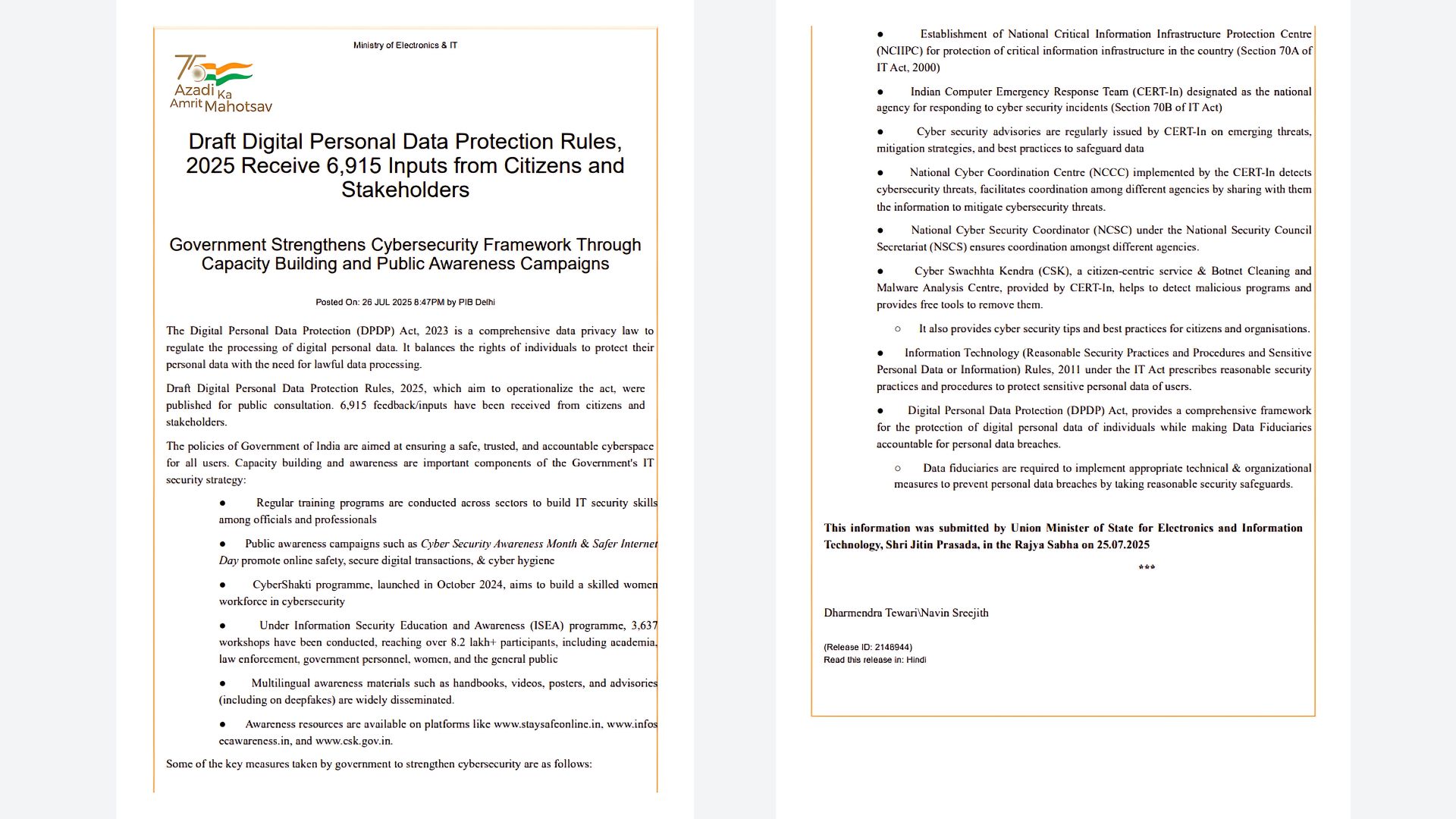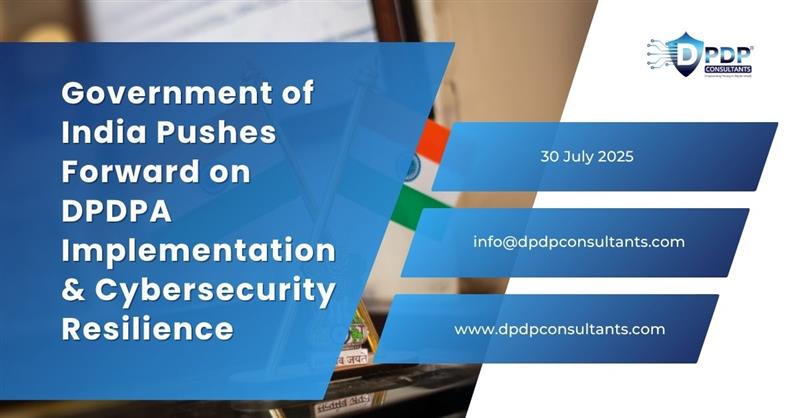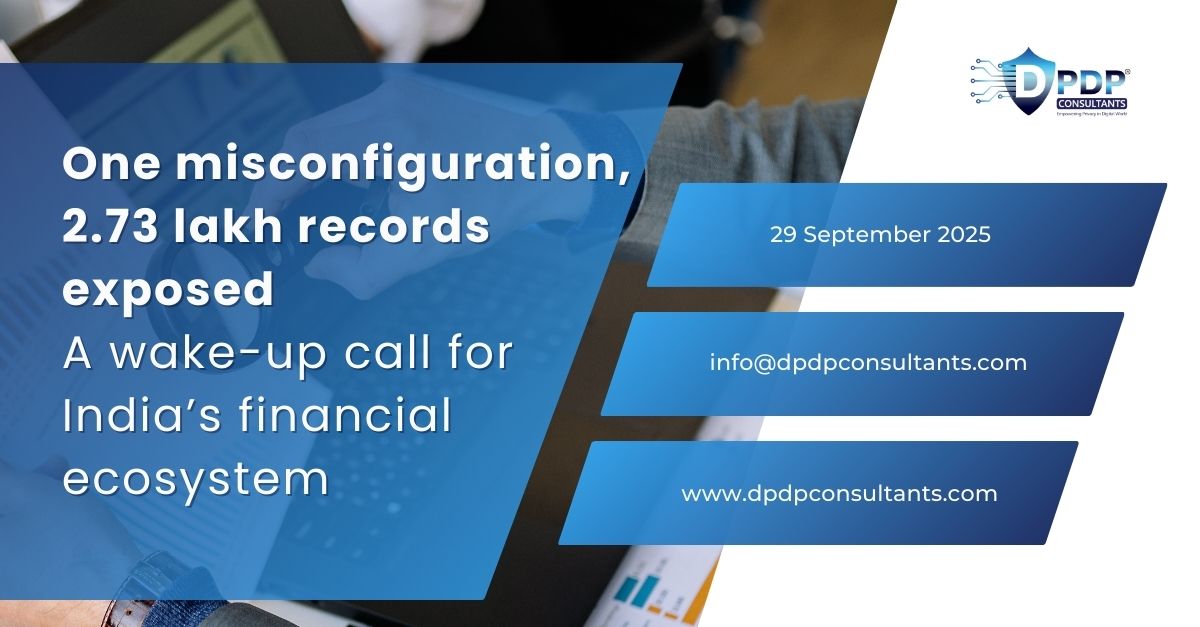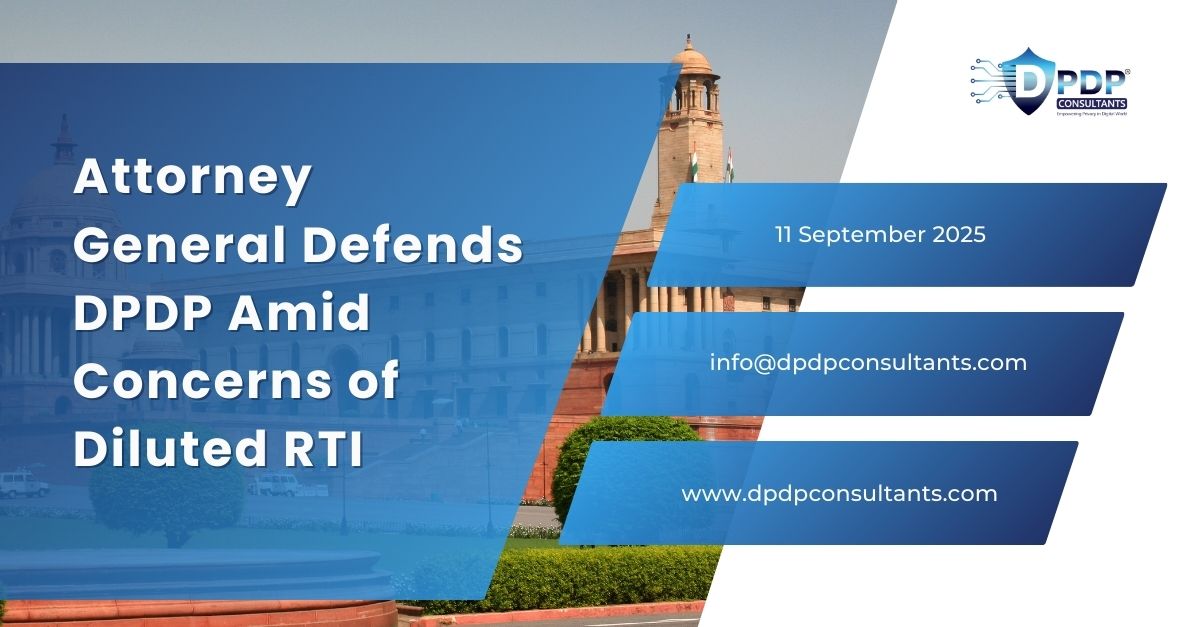In a significant move toward strengthening India's digital
ecosystem, the Ministry of Electronics and Information Technology (MeitY)
recently presented an update in the Rajya Sabha outlining the country’s
progress on implementing the Digital Personal Data Protection Act (DPDPA),
2023, and broader cybersecurity measures.
A central highlight of this update is the development of the
Draft Digital Personal Data Protection Rules, 2025, which are intended
to operationalize the DPDPA. The draft has attracted an impressive 6,915
inputs from a diverse range of stakeholders, including citizens, industry
bodies, and digital rights organizations. This high level of engagement
reflects the growing awareness and importance of privacy and data protection in
India's rapidly evolving digital landscape.

A Pivotal Step Toward Transformative Data Governance
The DPDPA represents one of the most transformative shifts
in India’s data governance framework. The government has emphasized its
commitment to building a safe, trusted, and accountable digital environment
that aligns with global standards while addressing the unique needs of the
Indian digital economy.
Security and Compliance Obligations under the DPDPA
The Ministry's update reiterates the security obligations
that organizations—classified as Data Fiduciaries—must fulfill under the
DPDPA. These include:
- Implementing
appropriate technical and organizational safeguards to prevent
personal data breaches
- Ensuring
reasonable security measures are in place to enable lawful, fair,
and transparent processing of personal data
- Building
accountability mechanisms into data handling practices throughout
the lifecycle of personal data
These mandates reinforce the regulatory emphasis on preventive
compliance, not just reactive measures.
Capacity Building and Awareness Initiatives
Recognizing that regulation alone is not sufficient, the
government has launched several programs to promote digital literacy,
cybersecurity awareness, and inclusivity:
- The Information
Security Education and Awareness (ISEA) program has conducted over 3,637
workshops, directly engaging more than 820,000 individuals across
the country.
- In
October 2024, the government launched CyberShakti, an initiative
aimed at fostering a women-led cybersecurity workforce, addressing
both gender diversity and national digital resilience.
- National
campaigns like Cyber Security Awareness Month and Safer Internet
Day have amplified public awareness on digital hygiene and responsible
online behavior.
- The
dissemination of multilingual educational content has helped
communities understand complex cyber threats, including misinformation and
deepfakes.
Strengthening Institutional and Technical Infrastructure
India continues to invest in its cybersecurity backbone
through the work of key national institutions:
- CERT-In
(Indian Computer Emergency Response Team) and NCIIPC (National
Critical Information Infrastructure Protection Centre) remain central
to managing cyber incidents and protecting national infrastructure.
- The Cyber
Swachhta Kendra provides free malware removal tools and cyber
hygiene advisories for citizens and organizations.
- Platforms
like the National Cyber Coordination Centre (NCCC) and the National
Cyber Security Coordinator (NCSC) are driving inter-agency
coordination and real-time threat intelligence sharing.
What This Means for Organizations
As the finalization of the DPDPA Rules draws closer,
businesses—especially those processing large volumes of personal data—must
prepare for a higher bar of compliance. This includes:
- Reviewing
internal data lifecycle management practices
- Identifying
and addressing gaps in data governance frameworks
- Instituting
robust consent mechanisms and grievance redressal systems
- Training
employees and vendors on the principles of data protection
Compliance with DPDPA should not be viewed merely as a regulatory
checkbox, but as a strategic imperative in today’s privacy-conscious
and cyber-vulnerable business environment. Organizations that embed data
protection into their core operations will not only avoid legal risks but also
build long-term trust with customers, partners, and regulators.






